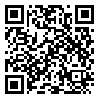Volume 5, Issue 17 (2012)
LCQ 2012, 5(17): 90-110 |
Back to browse issues page
Abstract: (7075 Views)
This paper tends to investigate discourse, power, and language in Behrangi’s “Olduz va kalagh-ha”[1] and “Olduz va aroosak-e sokhangoo”[2] under the light of Foucauldian new historicism to demonstrate that multiple discourses of the selected texts are inseparable from the political, social, literary, and cultural discourses of Behrangi’s era. The study also illustrates how Behrangi has portrayed the mutual relations between language and power by the use of objects and animal characters in his stories. As soon as language threatens power (stepmother), it is doomed to silence.
[1] “Olduz and Crows” [2] “Olduz and the Talking Doll”
[1] “Olduz and Crows” [2] “Olduz and the Talking Doll”
Keywords: discourse, new historicism, power, language, Michel Foucault, narrative literature of 14th century
Article Type: practical |
Subject:
Literary Theory|child Literature
Received: 2011/02/15 | Accepted: 2012/04/15 | Published: 2012/06/16
Received: 2011/02/15 | Accepted: 2012/04/15 | Published: 2012/06/16
| Rights and permissions | |
 |
This work is licensed under a Creative Commons Attribution-NonCommercial 4.0 International License. |



